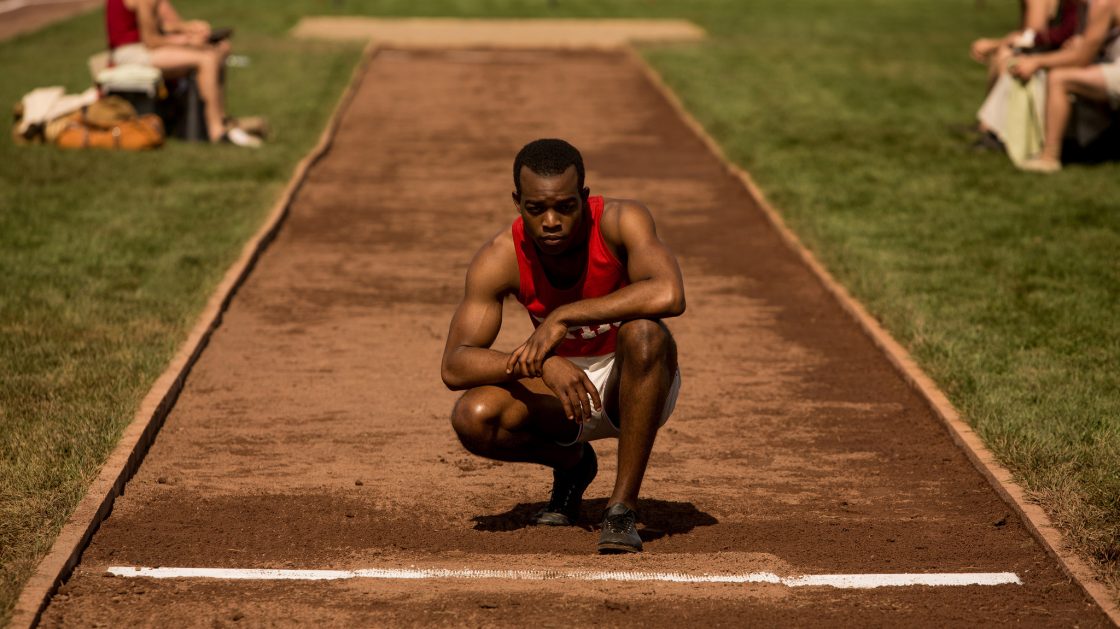By Allison Lyons, Undecided, ’24
“Race” was released in 2016 and focuses on the story of Olympic Track & Field legend, Jesse Owens, who is famous for crossing racial barriers to take a stand against Hitler and the Nazi regime during the 1936 Berlin Summer Olympics. Jesse Owens is known to be an extremely humble athlete, given his extraordinary talent, and his personality and attitude towards the racism and hardships that he faced is what has made him such a successful athlete and leader for the black community.
One main issue with this film though is that it enforces the message that if you ignore racism, it will go away. One scene that emphasizes this is when OSU’s all-white football team shouts racist remarks at Jesse and his other track teammates who are distracted and demoralized by these remarks. Trying to teach his trainees a lesson, OSU’s Track Coach, Larry Snyder, deliberately keeps the track team in the locker room as the football team enters, and as the player’s protests get increasingly louder, Snyder lectures the runners on how to shut out the noise. This was a particularly interesting scene because the artistic choice made by the director was to eventually flatten out the football team’s shouts into background noise as you see the situation from the perspective of Jesse as he focuses on his coach’s words, and blocks out the excess noise. This lesson carried into later scenes, specifically the 100m dash at the Olympics where the crowd noise slowly muffled until it was complete silence, besides the mediator of the race saying “take your mark” and then hearing the starting gun fire. However powerful these scenes were in the moment, it left the audience with the idea that racism can easily be blocked out of people’s lives, and if they just don’t pay attention to it, that it will just go away by itself. This is called the suspect message and while it is a useful tactic in the short-term, it is not 100% realistic, nor as easy as the director may have made it seem in these scenes.
I found the film to be more of an uplifting, feel-good movie with a happy ending rather than a powerful film about combating racism. The happy ending almost implied to the viewers that everything has been resolved, which is not the case, especially since so many of the racist themes present in the film are still relevant today. Despite this however, I felt that this film was really good and was very informative of both the historic and racial events from this time period, specifically about the controversy surrounding the 1936 Berlin Olympics. I think that it is extremely important for these films about true events from our past to be made so we do not overlook or forget about where we come from, as well as comparing these events to how we function as a society today. This is important, especially now with Black Lives Matter, because it just goes to show that there is still a lot of work to do, and this is not something that will just go away if it is ignored.
